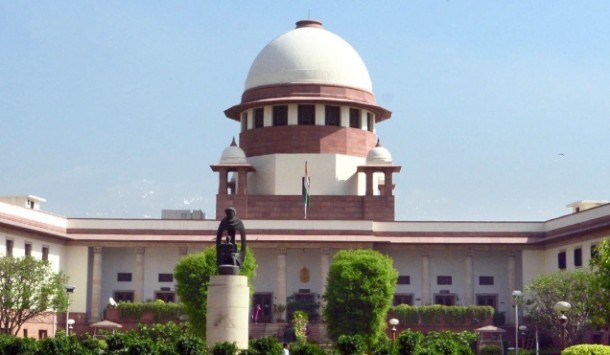
The Central government has justified the 10 per cent reservation benefits for the Economically Weak Sections (EWS), emphasising that the move is meant for promoting "social equality" and giving "equal opportunities" to all, irrespective of their castes.
Submitting its affidavit in the Supreme Court, the government contended that the constitutional amendment was completely justified in law and that no previous judgment by the top court could come in its way.
According to the Ministry of Social Justice and Empowerment, the constitutional amendment has carved out a completely new class of Economically Weaker Class (EWS) based on economic criteria, and thus, the Supreme Court judgment in Indra Sawhney case will not apply.
Responding to a batch of petitions that cited the 1992 Indra Swahney judgment to claim that the government has breached the 50 per cent ceiling on reservations, the affidavit argues that the cap on reservation was applicable only to the SC/ST and OBCs and not to the new class, which has come into being just now following the constitutional amendments.
"This Hon’ble Court in Indra Sawhney case did not have the opportunity to deliberate or hold in relation to the constitutional amendment, whereby the new criteria of ‘economically weaker sections of the society’ has been introduced. The decision was therefore purely on the anvil of the yardsticks available under Article 16 (4) and Article 16 (1), which are distinct from Article 15(6) and Article 16 (6) and will have to, therefore, be tested independently," stated the affidavit.
The government added that the amendments cannot be challenged on the ground of another ruling by the top court, which laid down that socio-economic criteria can't be the basis to grant quota benefits.
It said the indicators that were used for identification of socio-economic backward classes cannot be used for identification of economically backward classes, mainly because, at first place, classes are not homogenous, and secondly, they do not have a common criteria like that of castes, on the basis of which, economic backwardness can be evolved.
Referring to the findings of the Sinho Committee Report in 2010, the affidavit said that a considerably large section comprises the lower middle class and those living below poverty line but the States were unable to identify EWS for extending benefits of reservation till necessary Constitutional Amendment were made or the Supreme Court directs raising the ceiling for reservation beyond 50 per cent.
"In light of the aforestated background, it was deemed necessary that a constitutional amendment be brought in to promote social equality by providing opportunities in higher education and employment to those who have been excluded by virtue of their economic status," maintains the affidavit.
Also rejecting the allegation in the petition regarding violation of the basic structure, the government has told the court that the newly inserted provisions of Article 15(6) and Article 16(6) are enabling provisions for advancement of the EWS and are in fact, in conformity with the principle of Reservation and Affirmative action, which are the touchstones of protection of equality of citizens.
The Supreme Court is scheduled to hear this matter on March 28 when it would also consider referring it to a Constitution Bench, for the issue involves interpretation of the constitutional amendments.
The case was listed last on Monday when the Attorney General had informed the court that their affidavit was ready to be filed.


.jpeg)

